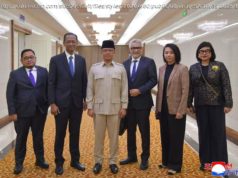Ever since I saw the movie Colossal at Fantastic Fest this past fall, I’ve been waiting for it to come out in theaters. I wanted to write about…
Ever since I saw the movie „Colossal“ at Fantastic Fest this past fall, I’ve been waiting for it to come out in theaters. I wanted to write about its perceptive take on personal responsibility, problematic female drinking and the hidden dangers of hometown hookups with seemingly nice guys that you went to school with.
„Colossal“ is the tale of party girl Gloria (Anne Hathaway) who has had too much of a good time for too long. Gloria’s career prospects are dim and, when she comes home drunk one time too many, she is thrown out of her lovely New York City apartment by her successful beau Tim (Dan Stevens) , who is making an effort to help Gloria get her act together. Out of options, Gloria retreats to the small hometown, where she promptly starts partying with a seemingly nice guy, Oscar (Jason Sudeikis)
Just as she moves home, Gloria starts seeing footage on television about a monster who inflicts major damage on Seoul.
Now that the film is in theaters, things have changed in the world. Brilliant Spanish Director Nacho Vigalondo has still brought us one of the best monster movies in a long time, with his clever take on an unexpected city-stomper. The film is also a skillful deconstruction of unpleasant and tangled human relationships and a hard look at what a close relationship to alcohol can cost you.
Given shifting political relations between the United States and North Korea in the last few weeks, my thoughts on the film morphed into a very different beast. Even so, the most important lesson may still be the importance of not letting a monster destroy Seoul.
Korea isn’t a place dear to many American hearts. Maybe because most Korean references in mainstream American culture seem to come from the TV show „M. A. S. H., “ in which members of the 4077th Mobile Army Surgical Hospital made continued references to the awfulness of Korea, couldn’t wait to get out of the country and joked constantly about the awful taste of kimchi (they’re wrong, it’s delicious.) „M. A. S. H.“ was one of the highest rated television shows, and its final episode set an audience record of more than 100 million viewers that stood for decades.
My 70s memories of Korean culture are different. Before I started kindergarten, a new family moved in down the block in my small town outside of Houston. In the way of small children, I quickly became inseparable from my new friend Sherry, whose Korean-born mother met her father while he was one of the 28,500 troops stationed in South Korea following the 1953 Korean cease fire.
Sherry’s stay-at-home mother often made me lunch and sometimes dinner. Since I installed myself at the Fuller household, I learned to use chopsticks shortly after I learned to use a fork. I long for the Korean food that Sherry’s mother used to make me. Unfortunately I don’t speak a word of Korean, and I have no idea what the dishes were called. But every so often, I smell something at a Korean restaurant sends me back to childhood.
Despite my love for Korean culture, I admit to being a little shaky on Korean history. Until recently, I didn’t really understand that Korea had only been divided into two countries when America and Russia were divvying up the spoils of WWII, as Korea had been controlled by Axis Power Japan before the war.
The Korean War, which I mostly know about from „M. A. S. H.“ had been started by the North Koreans who invaded the South, in an effort to make Korea just one country again. It’s easy to forget that technically the 1950-1953 Korean conflict never ended, that Korea is under a decades-old cease-fire. We forget that hostilities could resume any time.
Just to the north of the American ally and pop-culture juggernaut of South Korea, North Korea is busy testing missiles, sending troops out to march in parades and saying all sorts of alarming things. Reports indicate that Russia is sending weapons to the border they share with North Korea. Our own president is Tweeting about the need to be firm with North Korea.
How does all this apply to a seemingly slight monster movie that happens to be in many theaters right now?
One of the movie’s key points is personal responsibility. I’d hate to spoil the movie for anyone who hasn’t seen it, but the film include one characters doing something big to protect the people of Seoul.
Our country going to war with North Korea would be a bad thing, and it could result in catastrophic damage to our allies in South Korea, and possibly to our many American troops stationed on the Korean peninsula.
To take a lesson from „Colossal“ we can’t be the monster that has a part in destroying Seoul.
Maybe someone can arrange for a screening of „Colossal“ at the White House.
Anna Hanks is a music and entertainment writer in Austin. She wrote this column for The Dallas Morning News. Twitter: @annainaustin






